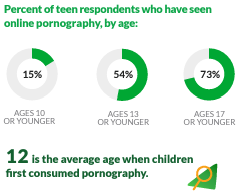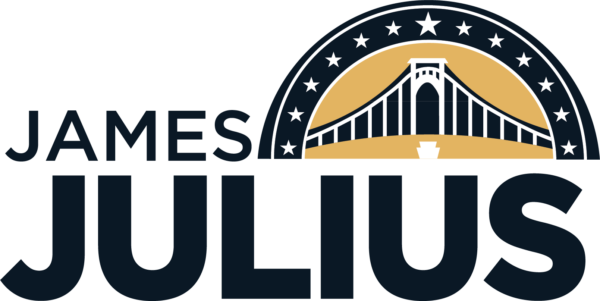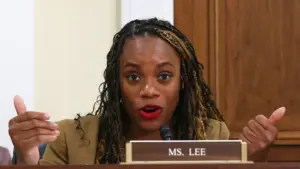Protecting Pennsylvania’s Moral Fabric: A Call to Ban Pornography
Pennsylvania’s youth are growing up in a digital age where harmful materials like pornography are just a click away, threatening their mental health and our community’s moral foundation. According to a 2022 survey conducted by Common Sense Media, over 40% of teens reported encountering explicit material online without seeking it, illustrating the pervasive nature of such content and the urgent need for protective measures. The time has come for decisive action. To protect the most vulnerable among us and uphold the values that sustain our society, Pennsylvania must implement a comprehensive ban on pornography.

The Harmful Effects of Pornography
Scientific evidence paints a troubling picture of the impact of pornography on mental health. A 2024 study published in Current Psychology found that higher consumption of pornography among pre-adolescents was associated with difficulties in emotion regulation and increased internalizing and externalizing symptoms. Read the study here. Adolescents subjected to pornography often report distorted perceptions of relationships, heightened body image issues, and increased susceptibility to risky behaviors.
Further supporting these concerns, a study published in PLOS ONE found that adolescents exposed to sexually explicit media were more likely to engage in risky sexual behaviors in emerging adulthood, such as having multiple sexual partners and inconsistent condom use. Read the study here. These behaviors pose physical health risks and contribute to psychological distress, underscoring the need for preventive measures to protect youth from early exposure to explicit content.
Pornography’s widespread accessibility also makes it a public health crisis. Chronic use alters brain activity in ways similar to substance addiction, impairing cognitive and emotional regulation. Given these documented harms, the normalization of pornography is a serious oversight in our societal safeguards.
Legal Precedents Supporting Action
Recent legal developments underscore the feasibility and urgency of regulating pornography. Just days ago, a federal appeals court upheld Tennessee’s age verification law, requiring websites to verify users’ ages before granting access to adult content. The law mandates that websites hosting adult material implement robust age verification processes, such as government-issued ID checks, to prevent minors from accessing explicit content. This groundbreaking legislation sets a standard for protecting children and establishes a legal framework that other states can emulate. Read more about the ruling here.
The Supreme Court’s consideration of Free Speech Coalition v. Paxton highlights the judicial recognition of states’ rights to regulate harmful content. Learn more about the case here. Critics, such as the ACLU, argue that such laws restrict protected speech. However, this perspective overlooks the precedent established in Miller v. California, which clarifies that obscene material lacking serious value is not protected under the First Amendment. Additionally, from a natural law perspective, the government has a duty to uphold the common good and protect society from harmful influences.
The Supreme Court’s decision in Miller v. California established the three-part obscenity test, relaxing the standard set in Memoirs v. Massachusetts (1966), which required material to be “utterly without any redeeming social value” to be deemed obscene. Under Miller, materials must lack “serious literary, artistic, political, or scientific value” to lose First Amendment protection. Read more about Miller v. California here. Numerous analyses and legal precedents show that pornography consistently fails to meet these criteria, validating the state’s authority to act. By implementing restrictions, Pennsylvania can protect public welfare while reinforcing the foundational principles of community health and moral accountability.
Addressing Counterarguments
Critics may argue that banning pornography infringes on free speech. Organizations like the ACLU, for example, argue that laws restricting access to explicit content could set dangerous precedents for limiting protected speech. However, this perspective fails to account for the distinction made in Miller v. California, which states that obscene material lacking “serious literary, artistic, political, or scientific value” is not protected under the First Amendment. Furthermore, the overwhelming evidence of pornography’s harm to mental health, interpersonal relationships, and societal cohesion underscores the necessity of regulation. Allowing unrestricted access to pornography compromises the greater good and public welfare, areas where government intervention has long been justified.
Others might contend that individuals should self-regulate their consumption of pornography. However, this argument overlooks the broader societal harm caused by its widespread accessibility. Protecting public welfare often requires government intervention, as seen with regulations on tobacco, alcohol, and gambling.
A Call to Pennsylvania Legislators
Leadership demands addressing uncomfortable truths to safeguard the greater good. While age verification laws may serve as a technological band-aid, they fail to address the core societal issue at hand. Pennsylvania’s legislators must recognize that pornography does not meet the threshold of obscenity as outlined by the Burger Court in Miller v. California. Given the current bench’s more conservative composition and the clear mandate from the 2024 election for a return to traditionalism, the state has a unique opportunity to lead. Pennsylvania must not only implement age verification measures but also take the bold step of outright banning pornography, citing its lack of First Amendment protection and the imperative to protect our youth and uphold societal values.
Such legislation would send a clear message: Pennsylvania prioritizes the mental health of its youth and the integrity of its families. Implementing these protections would reinforce the values that hold our communities together, fostering respect, empathy, and accountability.
Conclusion
The evidence is compelling, and the legal framework supports decisive measures. The mental health, societal, and moral costs of inaction are too high to ignore. By banning pornography, Pennsylvania has the opportunity to protect its citizens from harm and uphold the principles that define our state’s character.
I urge our state legislators to prioritize this issue and take bold steps to ensure a brighter future for Pennsylvania. The time to act is now. Together, we can protect the moral fabric of our communities and create a safer, healthier environment for generations to come.



